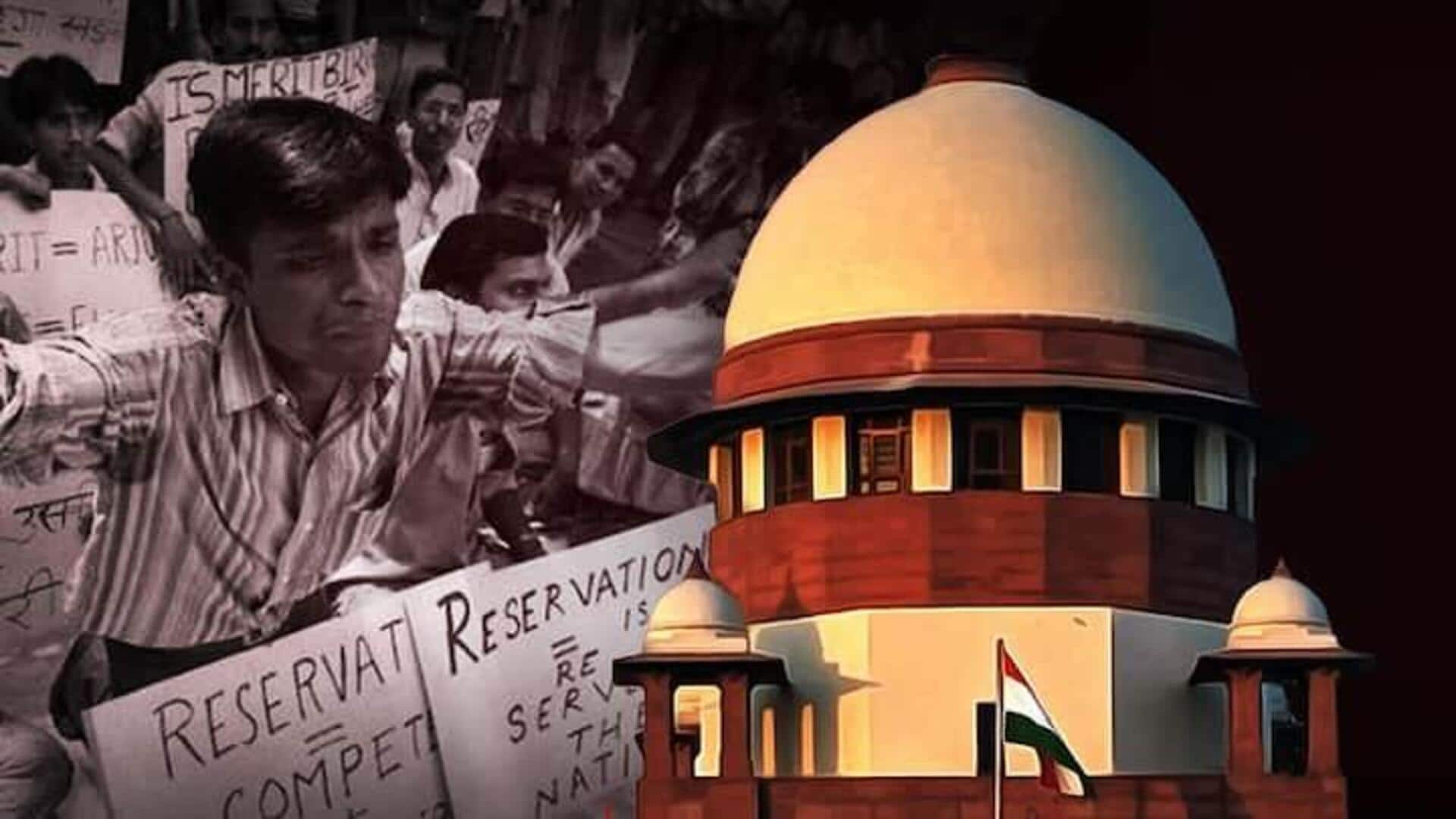
'No error': SC rejects review petition against sub-classification of SC/STs
What's the story
The Supreme Court has dismissed a series of review petitions challenging its August 1 verdict, which upheld the states' authority to sub-classify Scheduled Castes and Scheduled Tribes (SC/STs) based on their relative backwardness for reservation benefits.
The seven-judge Constitution Bench, led by Chief Justice of India DY Chandrachud, found no grounds for review presented by the petitioners.
The court stated, "Having perused the review petitions, there is no error apparent on the face of the record."
Sub-classification ruling
Court's stance on sub-classification of SC/STs
The constitution bench had on August 1 overturned a 2005 judgment that argued against sub-classification of SC/STs as it contradicted Article 341 of the Constitution.
"The members of SC/ST are not often able to climb up the ladder due to systemic discrimination faced," the bench had said.
It further stated that historical evidence and social parameters clearly indicate that all SC/STs do not constitute a homogenous class, allowing for their sub-classification by states.
Dissent and data
Dissent and clarification on SC/ST sub-classification
The majority of the bench also clarified that when a state does sub-classify SC/STs, it must be supported by empirical data and should not be based on whims or to meet political ends.
Four of the seven judges called for identifying the "creamy layer" among the SC/ST category to exclude them from reservation benefits.
Justice Bela Trivedi was the lone dissenting voice on the bench, arguing that such sub-classification is not permissible.
Petitions dismissed
Review petitions dismissed, upholding sub-classification validity
The review petitions were filed by several individuals and organizations, including All Peoples Party leader Thumati Ravi, lawyer Jaishri Patil, Samvidhan Bachao Trust, Dr BR Ambedkar Global Mission, All India SC/ST Railways Employee Association and National Federation of Dalit and Adivasi Organisation.
These were in response to the court's upholding of laws enabling sub-classification of SC/ST communities in Punjab, Tamil Nadu, and other states.